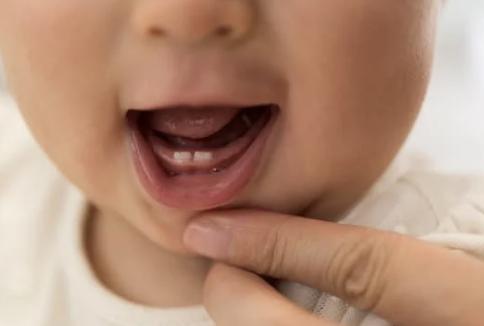A natural process starts when teeth come through the line of gum in babies between 3-7 months old or later; this process is known as odontiasis. Some babies have pain-free teething, and some may feel irritation; some behave weirdly for weeks, such as crying and poor sleeping and eating patterns.
Symptoms:
Teething may cause any of the following symptoms.
- Drooling of saliva
- Increased irritability
- Excessive chewing
- Tarty gums
- Moving hands toward the ear and mouth repetitively
- Mild fever
- Diarrhea and vomiting
Tips for managing a teething baby
- Pacifying Massage:
Gum massage can help manage a sore gum. Teething rings that are plastic and not gel-filled are used to distract them from the pain. (Keep these rings in cold places so they calm the pain.) Putting your fingers in a baby’s mouth to calm them is not advisable because it can increase the risk of infection.
- Chewing items:
When baby starts teething, they’ll try to chew anything they find, including their hands, toys, objects, or food. Give them healthy things to chew if you have introduced solids; otherwise, avoid solid foods and give them soothing toys.
- Foods:
Give them fruits that are soft as melon or banana. Let them eat soft bread so their gums don’t hurt. Avoid things that are sugar-coated or contain added or too much sugar as bakery items to prevent tooth decay.
- Avoid rashes:
Teething sometimes makes babies drizzle, so try to put on a bib that prevents them from getting their clothes wet and wipe their face repeatedly when you see any drizzling to avoid rashes.
- Medications:
If the baby has a lot of pain and behaves weirdly, try to give them some over-the-counter medicines such as ibuprofen or acetaminophen. However, avoiding aspirin is recommended in children.
- Bathing:
Give your baby a warm bath to avoid pain and soothe the baby, as warm bathing will relax the whole body, relieving the child from pain.
- Embracing the baby:
The growing baby undergoes teething and needs more love, care, and comfort. Cuddling with a child makes them relax and makes the ever-increasing process easy.
What if my child gets diarrhea, vomiting, or high-grade fever during teething?
Although it is common and not very serious to experience loose stools, vomiting, or fever at a teething age, it is better to consult a healthcare professional. Moreover, taking care of the baby’s hydration is essential because diarrhea and vomiting can rapidly lead to severe dehydration in a child.
Conclusion:
Teething is a natural process, and it usually starts in babies at three months or can be later as when they are 4 -7 months old. You first notice they become weird, have poor sleep patterns, the baby may cry more, and have a high body temperature than usual. Some children have pain-free teething, and some have extreme pain during teething. Parents must care for their children; cuddling with their babies, giving them warm baths, soothing them with toys, and cold teething rings and spoons can calm the pain. If the baby is six months old, introduce them to cool, soft foods to avoid the pain of teething.

